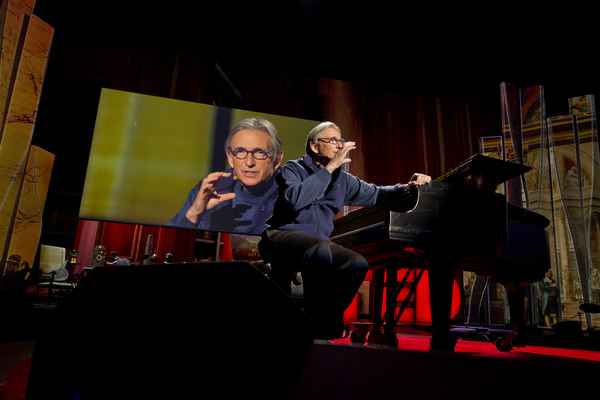Michael Tilson Thomas will be part of our Talking About Creativity this Saturday in San Francisco, starting at 1:30pm PT. Register today for this free event!
At the end of February, Michael Tilson Thomas gave a talk at the TED conference entitled “A brief history of classical music.” (You can read a complete write-up of the talk over on the TED blog.) Only MTT could sum up a thousand years of history in a compelling, informative, 20-minute session—covering musical notation, the role of technology, the birth of opera and ancient Greek gravestones.
There’s a reason we like to hear the notes we do today, he says. We’ve inherited “centuries worth of changes in musical theory, practice and fashion.” The secret weapon? Music’s silent partner: notation. “The impulse to notate, to code music, has been with us for a very long time.” Read the full article on the TED blog.
More recently, technology has changed the way people encounter and experience music. Recording made music readily available to all, whether you played an instrument or not. And technology pushed composers in new directions:
“Technology democratized music by making everything available; it spearheaded cultural revolution,” says Tilson Thomas. “Technology pushed composers to tremendous extremes; computers and synthesizers [prompted] intellectually impenetrable complexity.” And at the same time, technology pushed us to live in a culture of improvisation that is sliced, diced, distributed and sold. What is the long term effect of this? No one knows. But one real question remains: what happens when the music stops? What sticks? Read the full article on the TED blog.
What sticks, ultimately, is the power of music to transform and give meaning to our everyday lives. MTT’s final advice? “Dive in and pass it on.”



